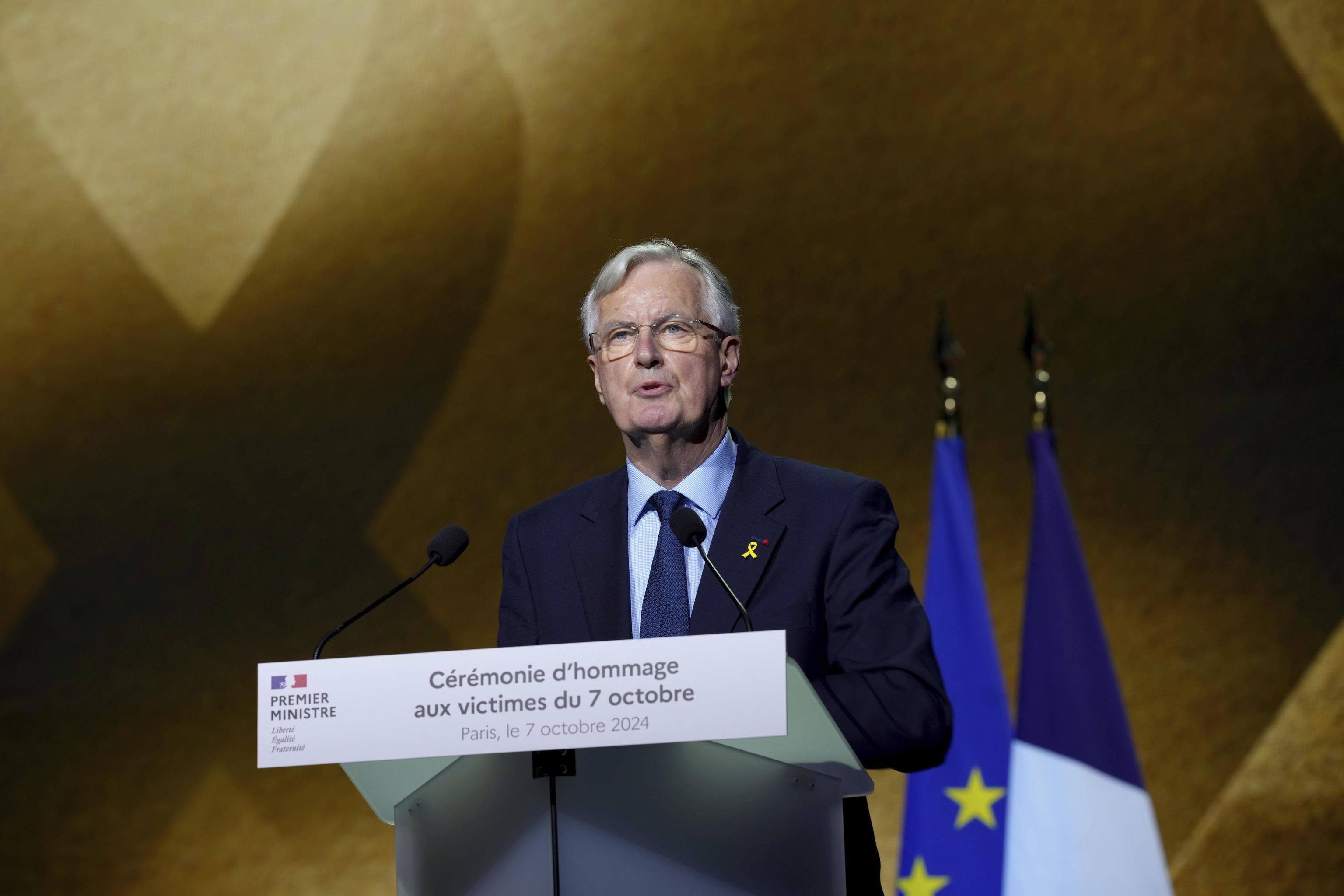French Prime Minister Michel Barnier and his new government have overcome their first obstacle on Tuesday, highlighting their fragility and dependence on survival. Just a week ago, Barnier made his debut in the National Assembly and presented his roadmap. Today, he faced his first vote of no confidence. Presented by the left and supported by the majority of the 192 deputies of the New Popular Front (a bloc that unites the radical left of La France Insoumise and socialists, ecologists, and communists), it did not succeed due to the lack of support from National Rally (RN), the far-right party of Marine Le Pen.
The motion only garnered 197 votes out of the 289 required to pass and bring down the government. To succeed, it needed their support (they have 142 deputies), but Marine Le Pen has already stated that she will not vote against the new government for now. Olivier Faure, leader of the Socialist Party and responsible for presenting the proposal to Parliament, denounced "an electoral coup" following Barnier's appointment after the legislative elections held in July.
In these early elections called by Emmanuel Macron, the left bloc obtained the majority (192 seats), although Marine Le Pen's party was the most voted (142 deputies). Barnier, aware that he depends on these two blocs, formed a government with Macronists and deputies from the conservative party of The Republicans. The left reminded him on Tuesday that in Parliament "there is no absolute majority."
"There is no absolute majority for anyone. There are relative majorities. This was the choice of the French people. And among the relative majorities, what I see is that the one supporting the government is today the least relative," he told Faure. "You cannot ignore the violence of this democratic turn," the socialist had told him, criticizing that "the French right prefers the support of RN over making any concessions for social progress."
During the debate, each side blamed the other for the instability in France: The far-right, Macronists, and Republicans reproached the left for "contributing to the imbalance," in the words of Pierre Cazeneuve (Macron's party), and vice versa, this bloc accused Macron of giving Le Pen the key to decide.
Barnier knew this motion was coming but also knew it would not succeed. Just weeks after the government was formed, discontent is growing within the Macronist wing due to Barnier's economic proposals detailed last week in his general policy speech. Differences in some measures, especially the idea of raising taxes, something that Emmanuel Macron has opposed since taking office, are already causing division within the new Cabinet.
This Thursday, the budget will be presented, another test for Barnier, as it includes controversial measures. Before the parliamentary vote, Barnier met with Macronist deputies in a tense meeting due to the aforementioned disagreements, not only regarding next year's accounts, which include significant cuts (40 billion euros plus another 20,000 in tax increases), but also due to the controversial Interior Minister, Bruno Retailleau.
He initiated the debate with a tribute to the victims of the Hamas attacks on October 7 and stated that there is an explosion of anti-Semitic acts. "No government will have less tolerance towards these acts." He is the most uncomfortable figure in the government due to his positions on immigration.
It may be just a matter of time before RN brings down the government. Guillaume Bigot, a deputy of Le Pen's party, stated during the debate that RN "is eager to vote in favor of the censure (...) they will not hesitate to vote tomorrow, but not today." "Censure is a serious act (...) We will not censure just for the sake of it," he said.
